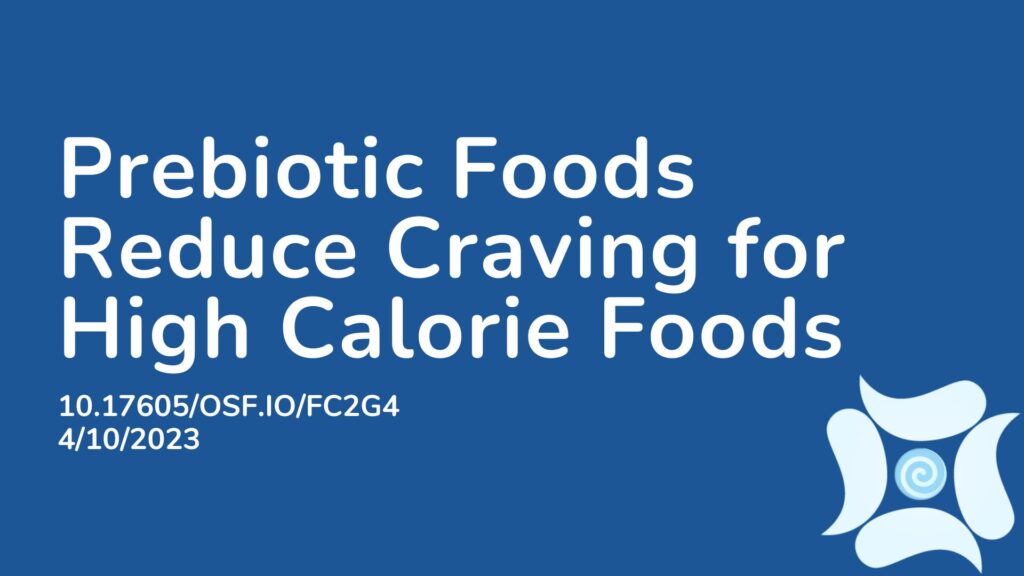Summary:
Plant-based diets are acknowledged to be more beneficial for cardiovascular and brain health, as well as weight management, when compared to traditional Western diets. This is mostly due to the fibers and prebiotics that are present in plant-based diets. However, there is still a lack of evidence to demonstrate how this diet affects the brain in terms of eating behaviours. This randomized controlled trial aimed to investigate whether a high-dose prebiotic fiber intervention could modify the gut microbiome and alter the brain in relation to food reward in a population at risk of weight gain and insulin resistance. In comparison to the placebo group, participants craved less high-calorie foods after consuming high prebiotic food. The findings also revealed significant changes to the microbiome composition of the participants, including an increased production of short-chain fatty acids, which are anti-inflammatory molecules known to protect against diabetes and cancer.
Abstract:
Objective Animal studies suggest that prebiotic, plant-derived nutrients could improve homoeostatic and hedonic brain functions through improvements in microbiome–gut–brain communication. However, little is known if these results are applicable to humans. Therefore, we tested the effects of high-dosed prebiotic fibre on reward-related food decision-making in a randomised controlled within-subject cross-over study and assayed potential microbial and metabolic markers. Design: 59 overweight young adults (19 females, 18–42 years, body mass index 25–30 kg/m2) underwent functional task MRI before and after 14 days of supplementary intake of 30 g/day of inulin (prebiotics) and equicaloric placebo, respectively. Short chain fatty acids (SCFA), gastrointestinal hormones, glucose/lipid and inflammatory markers were assayed in fasting blood. Gut microbiota and SCFA were measured in stool.
Results: Compared with placebo, participants showed decreased brain activation towards high-caloric wanted food stimuli in the ventral tegmental area and right orbitofrontal cortex after prebiotics (preregistered, family wise error-corrected p <0.05). While fasting blood levels remained largely unchanged, 16S-rRNA sequencing showed significant shifts in the microbiome towards increased occurrence of, among others, SCFA-producing Bifidobacteriaceae, and changes in >60 predicted functional signalling pathways after prebiotic intake. Changes in brain activation correlated with changes in Actinobacteria microbial abundance and associated activity previously linked with SCFA production, such as ABC transporter metabolism. Conclusions: In this proof-of-concept study, a prebiotic intervention attenuated reward-related brain activation during food decision-making, paralleled by shifts in gut microbiota.
Article Publication Date: 4/10/2023
DOI: 10.17605/OSF.IO/FC2G4




